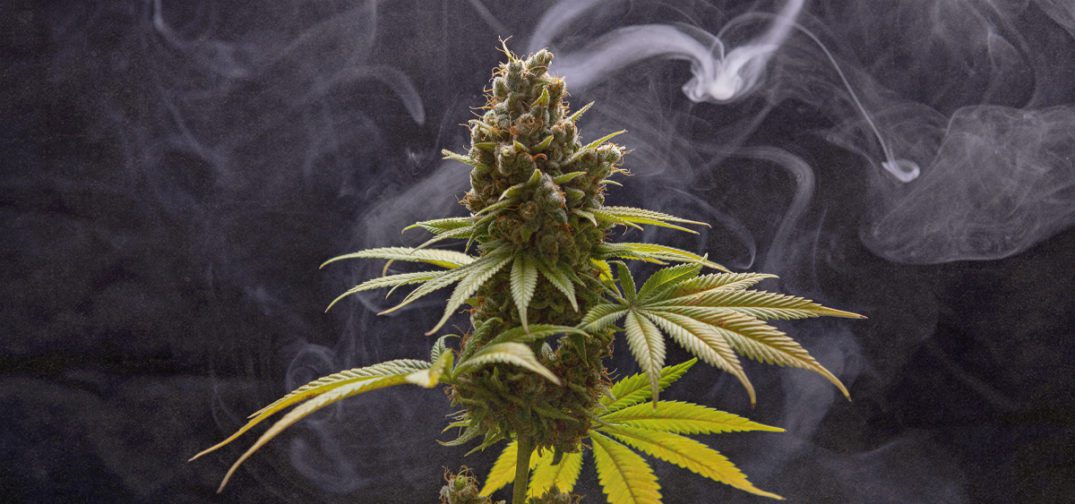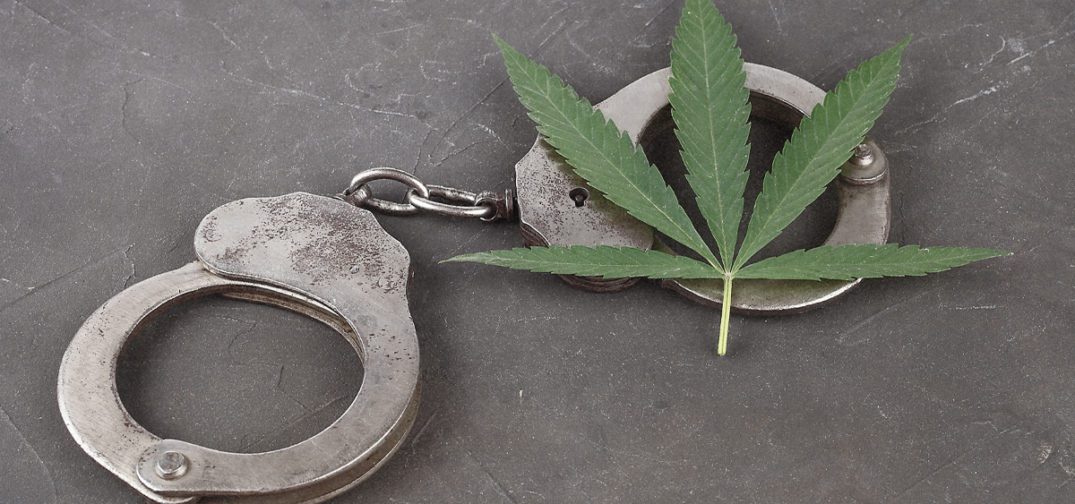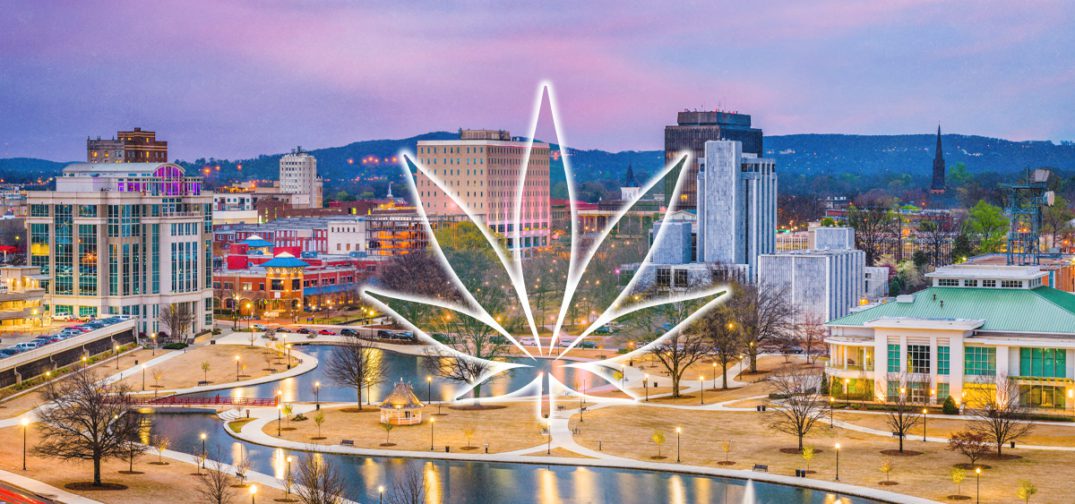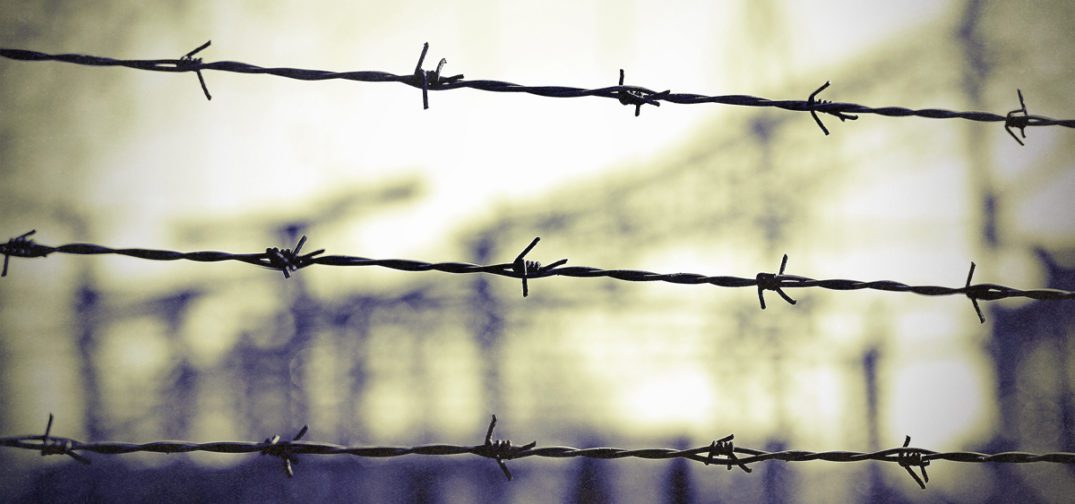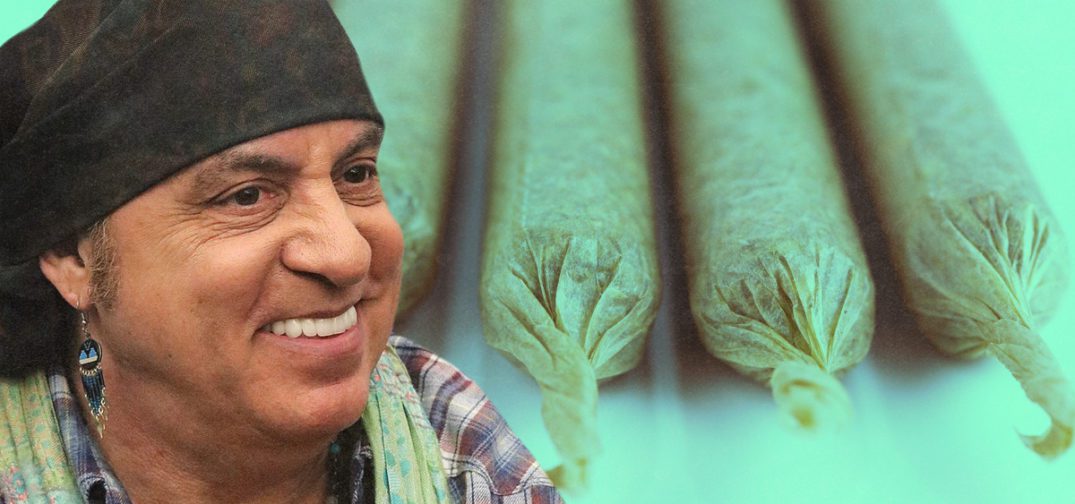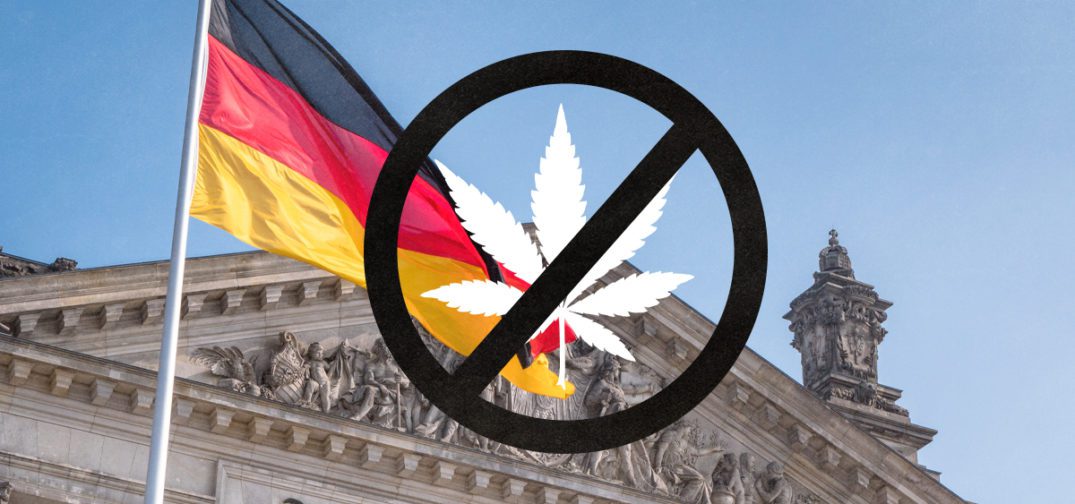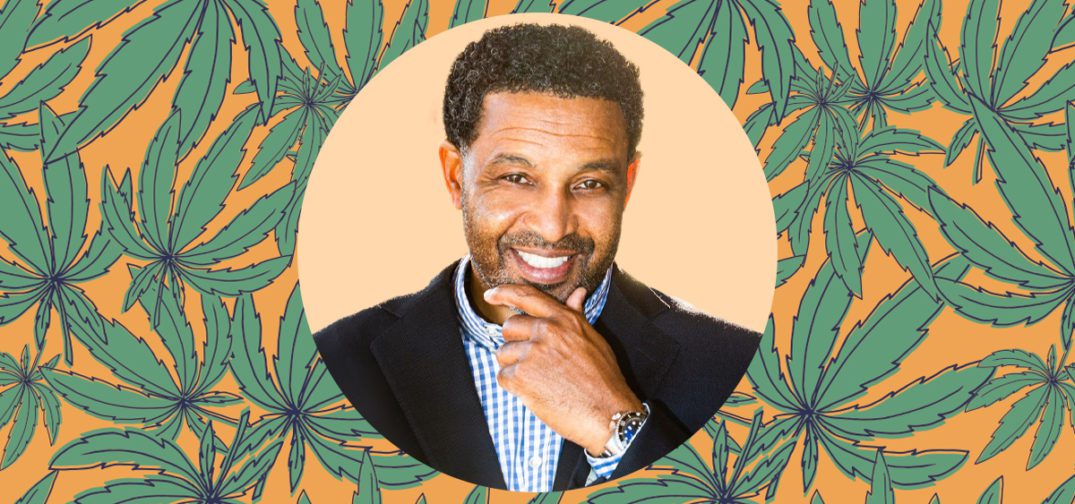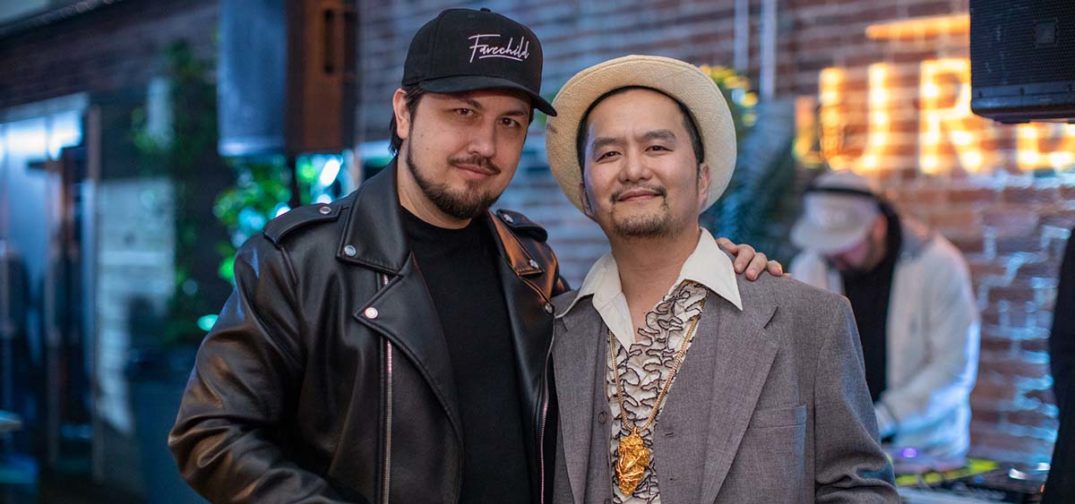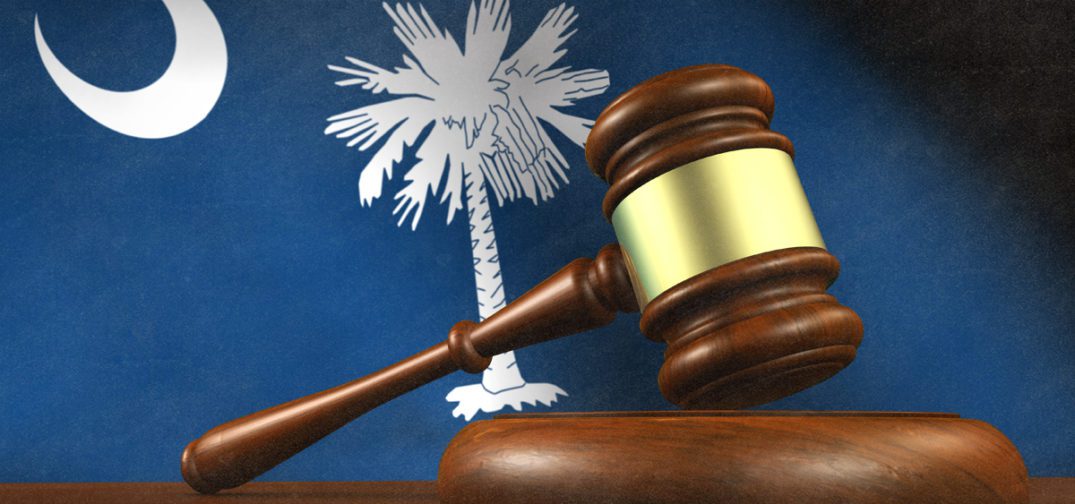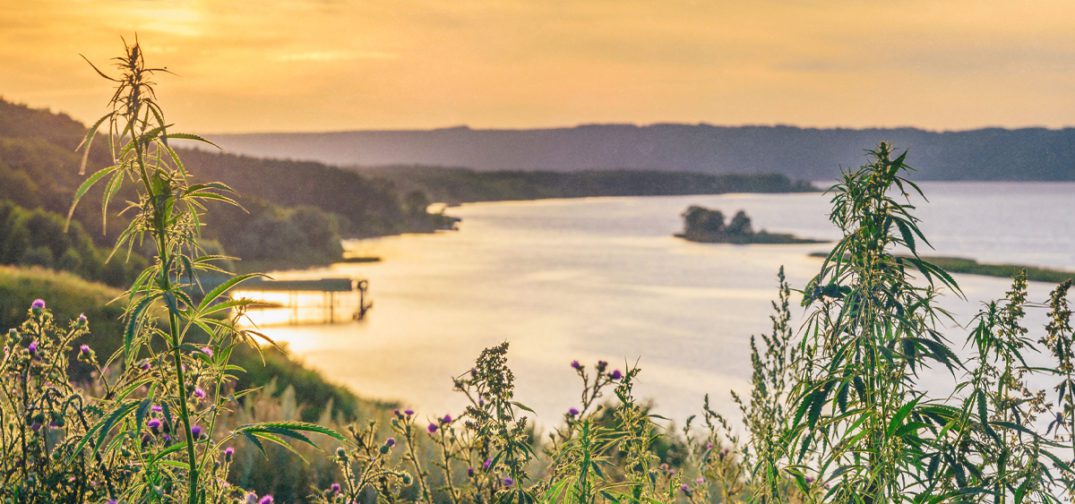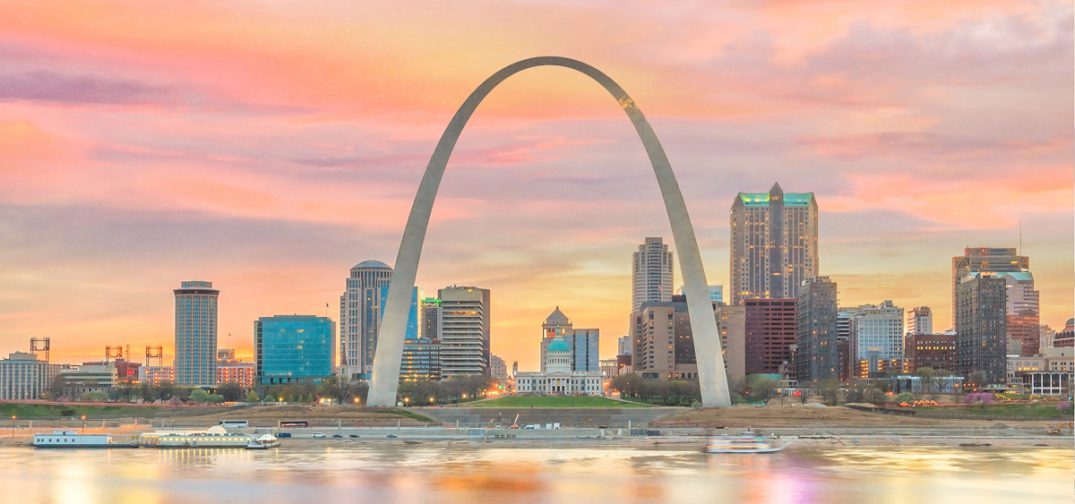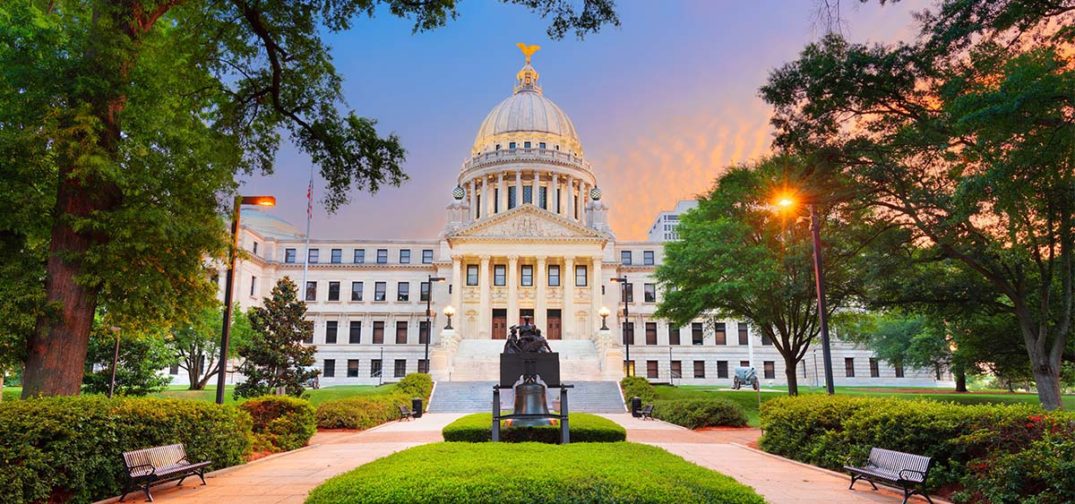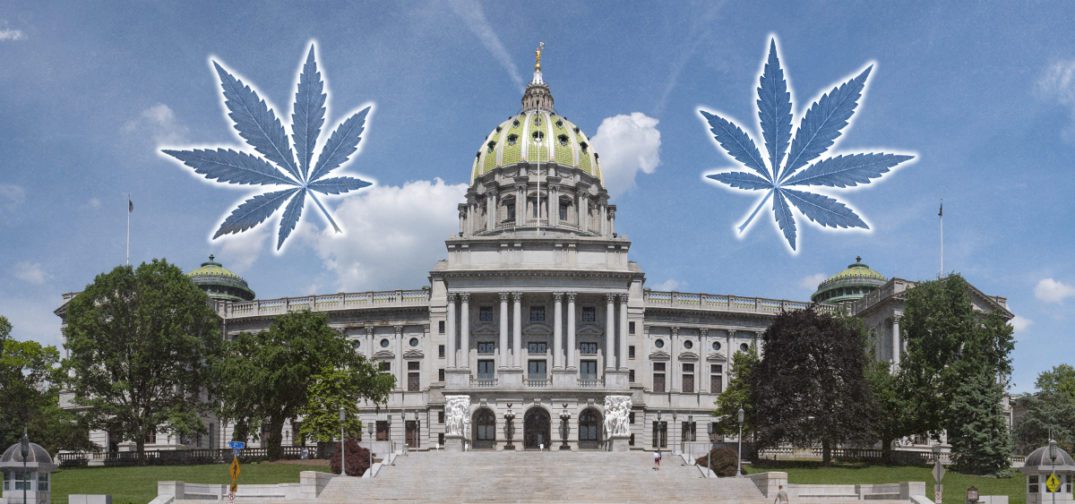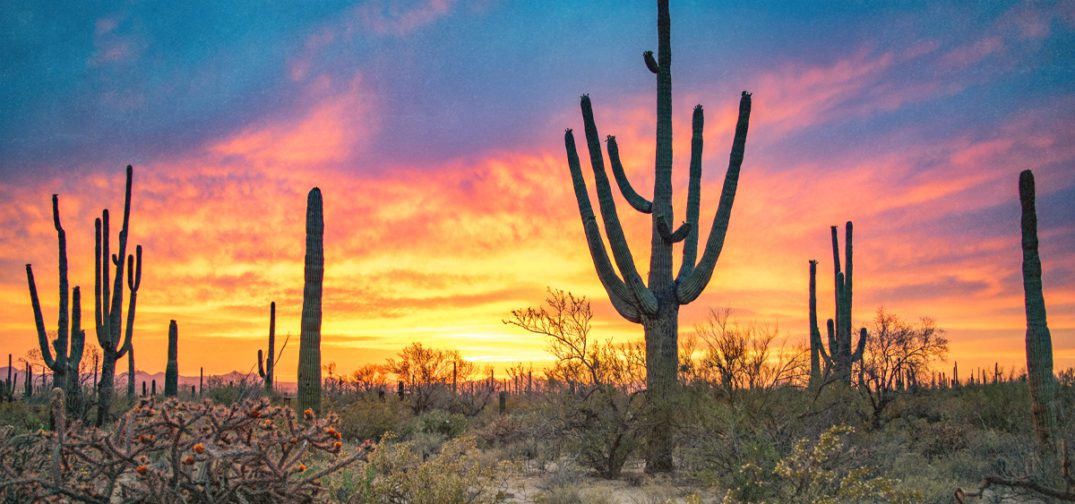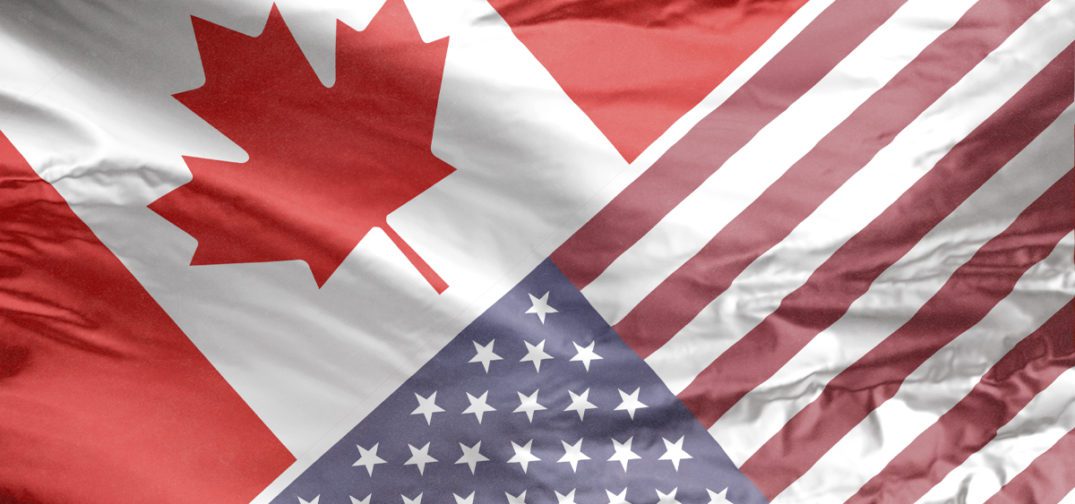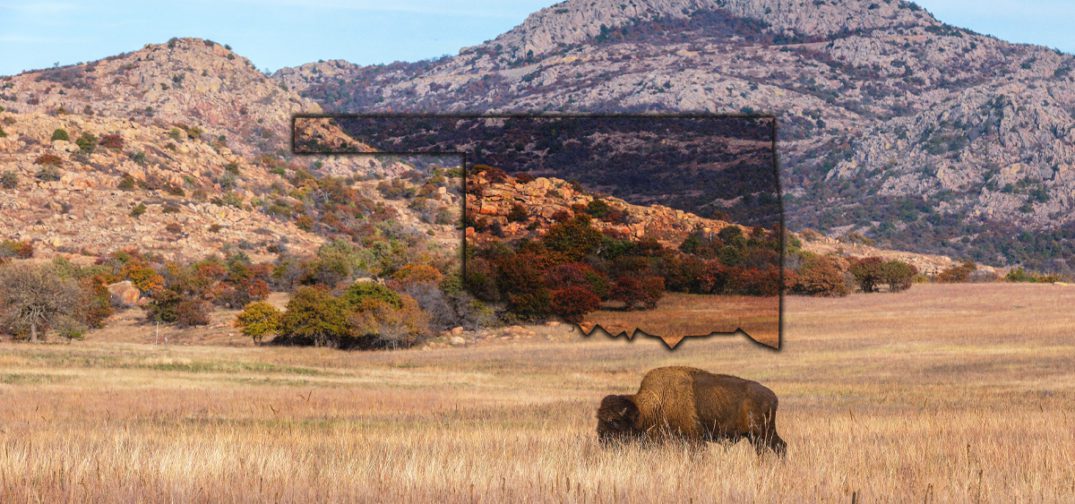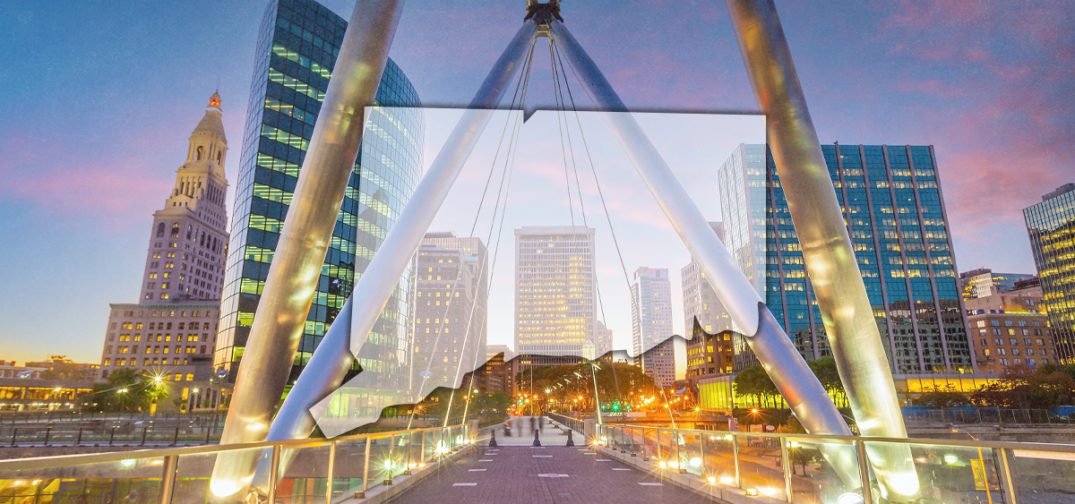Keith Stephenson is the owner and founder of Purple Heart, the first Black-owned cannabis business to be licensed in the U.S. and the longest-running cannabis dispensary in Oakland, California. During the sweeping social justice protests last year, Purple Heart was hit by a series of burglaries that ultimately crippled the company — Keith is still working to build back his business.
In this podcast interview, our host TG Branfalt asks Keith about entering the cannabis space in the 1990s and launching one of the country’s very first licensed cannabis businesses. This interview also covers Oakland’s groundbreaking social equity provisions (which were largely based on Keith’s suggestions), the early days of cannabis testing, how to achieve longevity in the frequently volatile cannabis space, and more!
Listen to the full podcast below or keep scrolling down to read a full transcript of the interview.
Listen to the podcast:
Read the transcript:
Commercial: This episode of the Ganjapreneur Podcast is made possible by AROYA, a comprehensive cannabis production platform for commercial growers. If you are a commercial cannabis grower, you can use AROYA to level up your production workflow. Featuring a combination of precision instruments, and powerful software that help you intelligently cultivate, dry, and process cannabis, the AROYA cannabis production platform is your ticket to greater yields, and consistent quality. Request a quote today online at aroya.io. That’s A-R-O-Y-A.io.
Cara Wietstock: Hi, I’m Cara Wietstock, Culture Editor at Ganjapreneur, and host our YouTube show Fresh Cut. The best way to understand cannabis business, is to speak directly to those who work within it, and Fresh Cut was created to shed recognition on the people who fill these roles. In this interview series, we focus on those with their hands in the dirt, both literally and figuratively. From cultivators to bud tenders, educators to advocates, activists to lobbyists, we aim to illuminate the workers who keep this industry thriving. Enjoy one-on-one conversations with me and guests, by watching along on the Ganjapreneur YouTube channel, and follow our social channels to keep up with the latest episodes. Have a great day.
TG Branfalt: Hey, there, I’m your host TG Branfalt, and thank you for listening to the Ganjapreneur.com podcast, where we try to bring you actionable information and normalize cannabis, through the stories of ganjapreneurs, activists, and industry stakeholders. Today, I am joined by Keith Stephenson. He is the founder and owner of Oakland, California-based, Purple Heart. The nation’s first Black-owned cannabis business, and Oakland’s longest-running cannabis retailer, which has served the Bay Area for 15 years, but unfortunately was among the cannabis shops targeted by thieves during last year’s unrest in the city. Purple Heart and Stephenson were featured in Ganjapreneur’s March report, Oakland’s Longest Running Dispensary Still Recovering From Last Year’s Crime Spree. I am really, really delighted to have Keith on the show. We got to talk a little bit for that interview, and there was a lot more that didn’t really make it to print that I think that Keith’s story needs to include, so here he is. How are you doing Keith?
Keith Stephenson: Absolutely phenomenal, Tim, and equally as important as how I’m doing, is how are you doing?
TG Branfalt: I’m doing great. It’s a really delight to have you on the show. I really enjoyed interviewing you for our article back in March. But people got to know a little bit, just got to scratch the surface of your story. So why don’t you fill in the gaps, and tell me about your background, and how you ended up in the cannabis space?
Keith Stephenson: Yeah. Well my background is professionally, I was an aviation maintenance technician for 17 years, for one of the top two airlines in the industry. And with that being said, I also had a preexisting juvenile form of arthritis, which was intimately involved in my life growing up. So that’s how I became intimately involved with cannabis.
TG Branfalt: And we talked a bit for the article, about your first jobs in the space. Tell me about your early experience in California’s medical cannabis industry.
Keith Stephenson: Yeah. My first experience professionally being involved, was working with the Oakland Cannabis Buyers Co-op, which was a retailer and a provider of medical cards in the City of Oakland. And from there I also worked at some of the grassroots organizations, like operating the phone banks, and just early adaptor work in the space, which allowed me to learn more about the industry, and realize that this is something that I wanted to be involved in early on. And when I say early on, we’re speaking like 1996, ’97, ’96, somewhere around there.
TG Branfalt: You said you started at phone banks, and you started at the club. What did you learn from those early days, that eventually led to you being able to start your own successful dispensary?
Keith Stephenson: What I learned, is that working in the industry was something that I truly loved. I really felt fulfilled, and it didn’t appear to be a job to me. It was a labor of love. And from that, just being around the plant, and having spent some time in gardening and trying to hone my craft, and just seeing that this was an industry that I liked. So it was something innate, it touched me and it allowed me to interface with other individuals who had some ailment that they were treating with the use of cannabis. So that’s one of the things that really brought me in.
TG Branfalt: You are the first Black-owned cannabis business in the United States. Can you talk to me a little bit about your early days, or even your experience now in what is a still white-dominated industry?
Keith Stephenson: Yeah. Early on, I say that wow, other operators had jumped into the space and I wanted to jump in, however, this was at a time when this Justice Department was really very intensified towards the medical cannabis industry. So I just didn’t have the ability to hop into this space, as an unlicensed operator like some of my other white peers were. And the difference now and then, is that right now you have a larger group of individuals who’ve never really interfaced with medical cannabis patients. So right now we have a market that, in California at least, is more “recreationally” involved. So when I initially started, there were many patients that we would provide cannabis for that succumb to their injuries. And that’s one of the bigger differences that I see, and also the large or well-financed companies that are coming into this space. So we’re really at a point where the industry is emerging, and this is the advent of commercial cannabis sales that we’re seeing.
TG Branfalt: And one of the things that I was really surprised to learn about when we spoke for that article, was that you played a really pivotal role in Oakland’s social equity licensing process. The city was the first in the state to roll those out. Tell me about that process, and what your role was in developing what has become really, a standard for every cannabis program that comes online.
Keith Stephenson: Yeah. So initially I was involved in the industry, and there just weren’t many people of color in space, in terms of being authoritatively and financially binded to companies. The positions you’d see people of color in, we’re typically positions of security to mitigate the threat. And I knew me, myself, I was capable of doing this. And what we have is, we’re talking about retail sales, and while some folks wanted to make it seem more than what it was, it was really business, kids who operate a business, and there are many people of color that operate successful businesses. However, the way I viewed the local regulations at the time at the city level, that some of these individuals that would be qualified to enter into the space, just would not be able to based off of how the regulations were written, because of growing up in an area that was targeted by the war on drugs.
And I just felt like as a collective group, we would never get to the place of opportunity. So I communicated with two Council members back in about 2008, or 2009, about working to change this. And I was just saying, “Hey. You know what, the way it’s written, these individuals that would have a record, they may have been arrested for cannabis, drug sales, or whatever, that they would not be allowed to operate into this space.” So it was something that early on they were like, “Yeah. We can see it.” And it took a decade, it took 10 years for this to come to fruition. So my position was early on, I was a thought leader. And then right before the city rolled out the program, I was really intricately involved in the language to make sure, that these individuals that grew up in these areas, that were heavily targeted by law enforcement for drug sales would have an opportunity.
And it’s one of the things that I shared with others in the industry. And I’ve always communicated like, “Listen, if you really think growing up in the inner city is always easy, I would surely exchange your Hampton experience, or whatever lifestyle that you dealt with in exchange for growing up in urban America.” Me, myself, I grew up in South Central Los Angeles, however, I’ve traveled enough to know that this was a systemic issue. It’s not just regulated to the area that I grew up in. That’s really what it was about. It was about giving opportunity to other individuals that lived in these environments that were targeted for the war on drugs.
TG Branfalt: And you make a good point when you call yourself a thought leader. And I think that, that’s almost an underrated characterization. You have operated and lived through, basically the entire life of California’s, go from the gray market to the medical market, licensed medical market to the retail market. Can you tell me about the challenges, the transition into each of those markets you faced as an operator?
Keith Stephenson: Yeah, absolutely. So the gray market is what I would experience, I would call it prior to the 215 Market. And that was just like, “Hey, California cannabis is really good,” and back then it was really good. And by me having a pre-existing condition, that was really about having continuous and daily pain. I don’t think anyone knows what it’s like to have pain all the time. And I think that’s how the opioid abuse has come into play, because as humans, we deal with pain, and then we want to find a source of comfort. And for many that source of comfort was opioids that were prescription-based. However for me, I realized cannabis made me feel good a long time ago. However, I operated in a safety sensitive position, and even to this day, workers that operate in safety sensitive positions cannot consume cannabis, or CBD.
So for me, it was like, “Hey what do you really want?” And for me, it was like, “I want a quality of life.” So now we matriculate into the 215 era, and my physician recommends cannabis, because a physician cannot prescribe cannabis, but he recommends cannabis. And I’m like, “Okay, this is great. Now I can go to the Oakland Cannabis Buyers Co-op,” and I’m like, “Okay, you know what, they’re hiring. So I’m going to take a part-time job here.” However, the stress of going to work at a facility, and this was a part-time job, and going to a facility that’s on the list of the Justice Department, or DEA is not an easy thing to do. And then you realize, “You know what, I have to work in this industry, because I’m not the only one who feels like this.”
And while there were others that were more pro recreational cannabis, I didn’t have the ability to really think in that frame of mind, because I’m dealing with a preexisting condition, and by the time I’m 26 years old, I’ve had both hips replaced. And I have range of motion issues, and my posture is changing, and I go from being six feet tall to 5’10, and my spine is compressing. So I’m consuming cannabis, and cannabis is alleviating the constant pain, and it’s allowed me to go into more of a recreational mode. So with that it worked out, and I started cultivating around that time. However, it became better being able to cultivate and having some protections from the local Police Department in the City of Oakland, being a cannabis patient.
So from there just going to the hydroponic store, and seeing it become more and more crowded, and then realizing, “Okay, I’ve got to pivot.” So pivoting into the recreational space, it was natural. However, it didn’t happen easy, this opportunity occurred because in my spiritual sense, how I’m communicating, is that the universe wanted me to play a part in this industry. And I spent a lot of time going to Oakland City Council meetings, communicating to staff afterwards like, “Hey. We need more cannabis dispensaries,” because the initial first four dispensaries that were licensed, I wanted to have one of those. However, during that process I had to have emergency surgery. I had diverticulitis and I’m like, “Wow. This is what I want to do.”
So I had to back out of it. And then I get in the industry, I become a retailer. Things don’t happen overnight. My burn rate was very high. It was 132,000 for the first three months. And this is at a time where I was cultivating at home, so I had saved a pretty large amount, like 75 pounds of cannabis to start the dispensary, and had I not done that, I don’t know what would’ve happened. So everything that I’ve learned previously from the time of my inception of dealing with licensed cannabis, and moving towards the timeframe of 2017, that’s when I first interfaced with the new regulators that were a put together by Governor Jerry Brown, to open or to start the Bureau of Cannabis Control.
And some of the individuals were from the Alcohol Beverage Control Department, in the State of California. So they had experience of dealing with a regulated inebriation product, however, they knew nothing about cannabis. So through the years, I think it was 14 years of my experience, I communicated with them the things that I had worked on, processes that the Purple Heart team had developed. And we just poured into them, because we wanted this framework to mirror what was right by the licensed industry standards. And just to go back, when I talk about the first Black-owned cannabis business, and we’re the number four licensed cannabis business in America, it’s about being licensed. I didn’t have the authority. Well, I had the authority, but I didn’t have the protection of going into this without being legally licensed.
So there are other operators that were operating, and then they became licensed. But what I wish to say, is that I am the first licensed Black-owned cannabis business in America, and the number four licensed in the country, period. So my experience in what I’ve given to the industry, is one of love. So as we move into this newly regulated market, me being able to interface with the officials Lori Ajax, and Dean Grafilo, and some of them have gone on to be lobbyists, some have gone on to work for other corporations, it allowed me to communicate what we found to be our best practices. And some of the things were adopted into the state regulation. Such as, at one time I was working on a hydroponic line of products before my mom took ill, that allowed me to go into the efficacy of finding out what’s in the hydroponic nutrients.
And we were moving towards a zero to low, heavy metal analysis. So these are the things that were brought into California regulations. And you have things, like when you use a sulfur burner, when you’re cultivating, sulfur burner is used to mitigate pottery mildew on vegetables and plants. However, it was never meant to be used on plants that would later be combustible. Meaning that we were lighting them, and that lighting the residue from the sulfur burner turned into a carcinogen once lit. So there was just a lot of things that myself, and operators in the City of Oakland learned about testing cannabis, and mold spores, and all these things. And initially I was not someone that welcomed testing. I used to refer to it as the easy bake oven theory, and I just thought it was something that the city wanted, that someone was in their ear to make us spend more money on this service. And I found that there were so many things that were on this cannabis. It was the-
TG Branfalt: Excuse me for a second. Are these the things that you discuss in your role on the Cannabis Advisory Committee as well?
Keith Stephenson: … These are things that I discussed prior to, and this is how I received the opportunity to be appointed to the advisory commission. So these were things that we were doing locally, and I wasn’t the first operator to do it, however, we developed a standard that was so high, that the City of Berkeley adopted our standards for their medical cannabis dispensaries. So it was just something that I wasn’t actually accepting of, because in business you’re looking at top line revenue, overhead, and how do we become not only successful, but profitable. And no one wants to run a business where your finances are tight. However, it allowed us to set this standard, but because me being a Black business owner in a cannabis space, I couldn’t promote what we were doing publicly, because I had to take a seat and just be quiet about it.
However, when you have a Richard Lee, from Oaksterdam University, one of the well known individuals that was really pushing the industry towards adult recreational cannabis, and you have a Steve DeAngelo from Harborside, it makes it easy for you to fall, I won’t say fall, but those are big figures. So it allowed me to maintain my anonymity. However, when you’re a first mover in this space, seems like the reward you get are 280E audits.
TG Branfalt: We can certainly talk about some of these, I guess, administrative, that’s not giving them enough credit, problems. But I want to ask you really quickly, what do you attribute your longevity in this industry? Having covered this space since 2014, I see businesses and people come and go, even some of the people who are riding high for five or six years, then they blow up spectacularly. How do you last this long?
Keith Stephenson: Well, for one, I think that there are three things that you have to have in the modern cannabis space. You have to have knowledge of the industry. You have to have financial, or fiscal responsibility, and you have to love what you’re doing. No one really has anything that’s different, product wise. So you have to be able to deliver exceptional customer care and service, and to be able to know the nuances of the industry. The buying patterns, the sales. Sales tend to go up at certain parts of the year, and they tend to go down at certain parts of the year. So your financial forecasting has to be on point, and you always have to have the ability to mitigate your exposure.
It’s a very costly business. A lot of times you see MSOs, multi-state operators, come into this space, they raise a lot of money, and then they go bust. And part of it is, believing that once you’re going to get in this space, that everything happens just to your favor, and that’s not the case. It goes back to what I was telling you about, me starting in this business, there being very limited competition, and I’m still losing, my negative burn is 132,000 a month for the first three or four months. And it’s like, “How do you mitigate that?” And I think that my history, is that I’ve encountered many turbulent periods of this emerging industry, and not being afraid, not folding, but really sticking to the script.
That I feel, and I believe that I know this industry better than anyone. Now, whether I know it better than anyone or not, it’s what I believe. I believe on my intimate knowledge, my preparation for the space, and how do I prepare myself in 2016 to be here in 2026, and understanding that all the things that I’ve been through, how do I not allow them to impact me? And when I say me, me is synonymous with the business, so there are a lot of things. I didn’t come into this space with billions of dollars. I do believe that the opportunity to be financially successful, is equally as important as being philanthropically successful. A lot of operators in the industry may really feel that, who makes the most money is the biggest winner.
However, how positively impactful have you been in this space? And there are so many things that we could chart our growth by, but ultimately, for me, it’s about how many people, or have you assist in getting into the space? How many brands have you helped break into the space? And when it comes to policy involvement, where have you been? I’ve been involved in the City of Oakland’s policy early on, where I sat on the Measure Z council, which is now the Oakland Cannabis Commission, which is a precursor to what I do at the State level for California. And it’s really me being someone from the industry, and me offering my greatest advice as to how this industry can move forward and grow, not in a manner that’s beneficial for me before the entire industry.
TG Branfalt: Well, and so you discussed your challenges and in our piece that we published in March, we discussed the ransacking of your shop at length with the riots that were happening, under the guise of the protests that were occurring. These are separate incidents, obviously. You had described it as organized crime, it was planned on Twitter. But what we don’t really go into in that story, is the depth into some of the other fallout, such as the insurance problems that you faced, and the issues with METRC that you experienced in the days and the weeks of following the event. Can you talk about those issues, and whether or not they’ve been fully resolved?
Keith Stephenson: Sure. Yeah, we did sustain two burglaries after temporarily closing to become COVID compliant. When I say COVID compliant, I mean building sneeze guards, acquiring the right disinfectants that we can use that are not only safe for our facility, but allows us to counter COVID, and any other sickness or issues that are happening there. So working with the insurance company, this has probably been my first foray into being upset with an insurer. And you realize you’ve paid years of insurance to protect the business, and you’ve never filed a claim, and then when you file a claim, they make it more arduous than what it has to be. And you realize that after talking with your legal counsel, I was told the only way to insurer makes money is by paying you less money than what they owe you.
And then you start to realize, “Well, this is why so much of our citizenry doesn’t like insurance companies, because you have a need to be covered financially, and you have a need to have whatever other harm that happened to be taken care of. But the underlying connectivity is the finances. And I feel that, based on my experiences, I want all the operators in the industry to know. There’s no reward in over insuring your business for more than what you can receive, and what I mean by that, if the business is only going to keep $200,000 in merchandise at the facility, there’s no need to pay for a policy that allows you $500,000 in coverage when you’re not going to have it. And then you start realizing how the adjuster, the insurance company all work together.
So now you’re attempting to find a solution, and then you realize that this is just capitalism. Where capitalism is about making money, but my thing has always been capitalism with a consciousness and giving back to the community. However, when you’re dealing with level business at this point, and the numbers are large what they have to pay you, what I’ve been told is that the insurers, they’ll just put you in a position to say, “Can you afford to litigate this case?” And if you can, they’ll try to get the case kicked out of court, and if they can’t get it kicked out of court, as you start progressing towards trial, then that’s when the insurers start to communicate with you in a manner that they want to resolve this, they want to settle this. But it’s an arduous turn, and I wish for the best for me and my industry peers.
TG Branfalt: Do you think that the response from your incident specifically, has to do with the fact that you are a cannabis business, and there may be a little bit of bias there?
Keith Stephenson: That’s difficult for me to say. I just think that regardless, I can say that may be an inference. It could be inferred that, that may be it. However, I also feel that insurers just they don’t want to pay you. If they have the ability to remove themselves out of any policy covers, they will.
TG Branfalt: So you had mentioned that you have this capitalism with a conscience, and you’ve donated to many community organizations, including Urban Services, YMCA, Oakland School of the Arts, the Oakland Police Officers Association, and the Covenant House of California, among others. What role by and large, do you think that cannabis businesses should have in community building?
Keith Stephenson: I think that as stakeholders in the community, we have to be in compliance with the community, and a community should be in compliance with us. And what I mean by that is, if a cannabis business is operating in a residential community, then you have to be accepting, and accountable to conversations to hear the community’s position. And I also think that if a community moves into a commercial district that has become habited by cannabis businesses, then that community should also put themselves in a position to have to acquiesce. Because I presented two situations that are similar, but different. And some communities are residentially oriented, and others are commercially oriented. And if you move into either districts, you should realize that me being a stakeholder means that I’m accountable to my neighbors, regardless of what they do. Just a couple weeks ago, I went to a facility, and this place, there was an intense cannabis smell emanating from the facility in a residential area. And how does one mitigate that? I can tell you, I like cannabis, however, the strong smell of cannabis in its final weeks of ripening and being trimmed can be rancid to some.
TG Branfalt: Yeah. New York, we obviously just moved into it. Anytime I read about what people describe cannabis as, when I lived in Florida, I remember the smell of the burning orange peels at the Tropicana plant, and that’s what I think about. I’m not somebody who really likes to smell citrus. So to your point, what do you think operators could do better in that regard?
Keith Stephenson: Well, I think that the operators are doing exactly what they planned on doing. However, I think that, that’s a more of a municipal issue and municipalities have to have an understanding of what they are permitting. Now, for the residents of that community, I don’t think they could be upset at the operators that are cultivating, processing cannabis, or anything like that. I think that as a citizen of that community, they have to voice their issue, if they even have an issue. I just found it very loud to be two blocks away and approaching this facility, and just like, “Wow. This is pretty loud.” Now, could I live in that environment? It may be difficult. I’ve cultivated cannabis at home, and it was fine with me because it was my cannabis.
TG Branfalt: Again, just like our conversation for the print article we again, just barely get to scratch the service with you, Keith. Okay. In the final minutes here, could you tell me, 30 years in this industry, it’s literally a lifetime for lesser men and lesser businesses. What advice do you have for entrepreneurs, who seek to be in this space for 30 years?
Keith Stephenson: One, make sure that you love what you’re doing. And so many operators come into the industry, because they look at it as a gravy train with meatball wheels. And I understand, if you want to do something for a financial gain to allow you the affordability, of a quality of life that you might not have right now. However, what makes you happy? So if cannabis makes you happy, you have ideas of doing things your way, try it. Make sure that you are able to be involved, and learn as much as you can about the industry, and make sure that the folks that you’re interfacing with are who they say they are, and that they have the experience that they’re stating to you. Because at this point, I know cannabis is such a young industry as we move into the legality of it, and there are many individuals who, everyone’s a subject matter expert.
However, this is the only industry where the disbarred attorney, or the mortgage broker who created fraudulent loans, can come into this space and say that they are subject matter experts. So do your due your diligence, find out what part of the industry you want to be in, and find out if you’re in a state where the opportunity tends to be not as easy, that you consider going to a state that it’s a lot easier. I spoke to an individual yesterday in the city of Oakland who wants to do it here, but they feel like the California regulation and taxes are a barrier to entry, so they want to go to Oklahoma. And I’m fine with that. And just really have an infrastructure, have sound legal advice, and have some involvement in the industry, where you can reach out to communicate with those in the space that have been doing some things. And if you have to pay for a professional advice, then be willing to do so.
TG Branfalt: I really enjoy being able to have these conversations with you back-to-back. I really feel like I’ve got to know you a little bit between interviewing you for the print article, and I really appreciate you taking the time both then and now, to tell your story, and offer your decades of experience to our listeners. Where can people find out more about Keith Stephenson and Purple Heart?
Keith Stephenson: Right now I would say, just Google Keith Stephenson. Definitely Google Keith Stephenson, and support my GoFundMe campaign that I’ve launched. And as we’re in a process of rebuilding and opening, you can go to purpleheartpc.com, and we’ll start providing more information on there. You could follow me on Clubhouse at purpleheart_keith, and just Google me and continue to listen to you, Tim. It’s awesome for you to share your time and your platform with me, and I greatly appreciate it.
TG Branfalt: Just so our listeners are aware, the GoFundMe, it’s in response to the ransacking, the burglary, robbery of your dispensary last Summer, your retail establishment. Could you tell people how they can find that GoFundMe?
Keith Stephenson: Yeah. It’s at GoFundMe. It says, Help Keith Stephenson Rebuild His Life. And the reason that I chose to put, ‘help me rebuild my life’, is because the cannabis space is one of those unique spaces, where right now no one wants to shake your hand professionally when it comes to financial institutions. And they’ll kick you out of a bank, and they’ll shut down your platform. So I’ve had to personalize this crowdfunding opportunity, by saying, “Help Keith Stephenson.” Because if I say anything about Purple Heart, it’s going to be shut down.
TG Branfalt: It’s unbelievable, it’s unbelievable. Keith Stephenson, he is the founder and owner of Oakland California based, Purple Heart. The nation’s first Black-owned cannabis business, and Oakland’s longest-running cannabis retailer. Keith, thank you so, so much for being on the show. I really wish you the best of luck as you reopen and get back on your feet, and I hope that the next time we talk, it’s about reopening the doors to Purple Heart. Thank you so much.
Keith Stephenson: Absolutely. Appreciate you, Tim. Thank you.
TG Branfalt: You can find more episodes of the ganjapreneur.com podcast, in the podcast section of ganjapreneur.com, on Spotify, and in the Apple iTune store. On the ganjapreneur.com website, you will find the latest cannabis news in cannabis jobs updated daily, along with transcripts of this podcast. You can also download the ganjapreneur.com app in iTunes, and Google play. This episode was engineered by Trim Media House. I’ve been your host, TG Branfalt.

